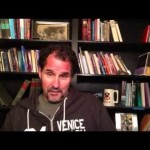We run our website the way we wished the whole internet worked: we provide high quality original content with no ads. We are funded solely by your direct support. Please consider supporting this project.
In a democracy, don’t Christians have a responsibility to participate in politics?
Question: You’ve argued that Christians shouldn’t try to gain power in government on the grounds that Jesus didn’t try to gain power in the political system of his day. But his government didn’t allow for such power. Caesar and Pilate weren’t elected by anyone. Our government allows for this. So don’t we have a responsibility to participate in politics to try to change society?
Answer: It’s true that the political system under which Jesus lived was very different from any democracy. But as Christ’s ambassadors from a different “country” (for “our citizenship is in heaven” [Phil. 3:20]), and as “foreigners” and “exiles” in our own country (2 Cor 5:20; I Pet 2:11), I don’t see that our basic stance toward government should be affected by the kind of government we happen to be under. We’re never to get too involved in the affairs of this foreign land but are always to keep our focus on pleasing our commanding officer (1 Tim. 2:4). All of our trust is to be placed in the power we have to change the world by imitating Christ’s self-sacrificial lifestyle, not in the power of laws that control behavior.
As followers of Jesus, therefore, it shouldn’t make any substantial difference whether the country we live in is democratic, socialistic, totalitarian, or communistic. We are missionaries in a foreign land wherever we are. We are guerilla warriors stationed behind enemy lines, called to topple the existing regime which is controlled by our captain’s arch enemy (1 John 5:19).
It may be easier to do our ministry in a democratic country and we thank God for this. But there are drawbacks as well, such as succumbing to the apathy that too often comes as we live with relative comfort and ease in a wealthy economy, being co-opted by non-Christian values, mistakenly placing our hope for redemption in political systems rather than the gospel, and so on.
The Kingdom we represent, and the Kingdom that will ultimately take over the world, is different from any of the other kingdoms of this world. We are called to change the world, but not by the means the world uses. Our power to change the world is rooted is prayer and sacrificial love. Our hope should be placed in nothing other than our Lord using us as we follow Jesus’ example to transform the world in a way the political systems of this present world cannot. Whatever distracts us from this one task must be avoided.
This doesn’t mean it’s wrong to participate in politics. It just means we have to be careful to keep this participation distinct from the Kingdom of God and careful not to place our ultimate trust in it.
Category: Q&A
Tags: Politics, Q&A, Social Issues
Topics: Ethical, Cultural and Political Issues
Related Reading

How do you respond to 1 Timothy 4:1–3?
“…in the later times some will renounce the faith by paying attention to deceitful spirits and teachings of demons, through the hypocrisy of liars whose consciences are seared with a hot iron. They forbid marriage and demand abstinence from foods…” New Testament authors considered themselves to be living “in the later times” (e.g. Acts 2:17;…

“I’m Angry, Too”
A reader (thanks, Jen!) sent us this blog post by Rachel Pieh Jones, an ex-pat from Minnesota living in Djibouti. She has some incredibly insightful and sad thoughts about the hateful responses to the recent protests and threats going on in other countries (and our own). We hope that as Christians we can contribute thoughtful…

How do you respond to 1 Kings 13:2–3?
The Lord proclaims against the pagan alter of Jeroboam, “O altar, altar, thus says the Lord: ‘A son shall be born to the house of David, Josiah by name; and he shall sacrifice on you the priests of the high places who offer incense on you, and human bones shall be burned on you.’ He…

Video Q&A: Do you think Jehovah’s Witnesses and Mormons are saved?
Does Greg believe that everyone goes to Heaven regardless of their beliefs? Find out here.

Don’t Miss Out!
See that little sign-up button for our newsletter at the bottom of this page? If you don’t already get the newsletter, you’re going to want to now. You get all kinds of special goodies like book recommendations and exclusive video. This month’s issue (which is set to send on Monday) will include a video of Greg…

Christians & Politics: Where Do You Stand?
In the 1980’s, Cal Thomas and Ed Dobson were leaders in the Moral Majority, a conservative evangelical social and political movement that attempted to rally “moral” people to change public policy. The movement died out in the 1990s. In 1999, Thomas and Dobson wrote a book entitled Blinded by Might in which they declare that…
